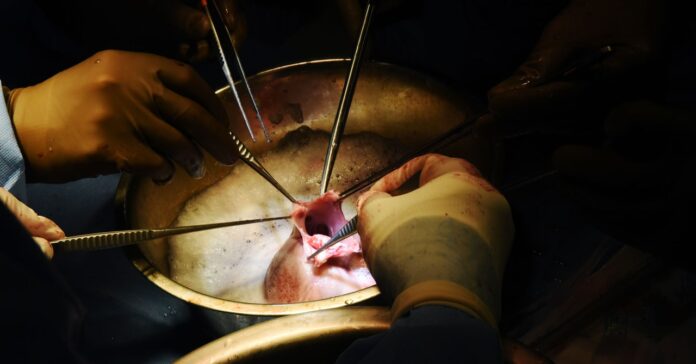With any organ transplant, docs are looking to steadiness learn how to save you infections whilst tamping down the immune device. With out immunosuppressive medicine, the transplant organ will probably be rejected. However giving sufferers an excessive amount of of those medicine makes them vulnerable to infections.
That’s what researchers suppose came about in Bennett’s case. To regard the CMV an infection, docs gave Bennett a remedy referred to as intravenous immunoglobulin, which is supposed for sufferers with compromised immune programs, together with transplant sufferers. A concentrated pool of antibodies from 1000’s of human donors, the remedy most probably contained herbal antibodies that attacked the pig organ and broken muscle cells.
The Maryland docs are taking other steps to forestall Faucette’s new center from being rejected. For one, they advised WIRED in December that that they had advanced a brand new, extra delicate take a look at to come across very small quantities of pig virus DNA. Earlier than the most recent transplant, they examined the donor pig frequently for CMV and different porcine viruses, in addition to micro organism and parasites. “This present day, we haven’t any reason why to imagine this donor pig is inflamed with porcine PCMV, which is the virus that was once known in our first xenotransplant recipient,” a school spokesperson advised WIRED in an e mail.
Medical doctors are treating Faucette with conventional immunosuppressive medicine, in conjunction with an investigational antibody remedy referred to as tegoprubart, advanced by way of California biotech corporate Eledon Prescribed drugs. The drug works by way of blocking off CD154, a protein desirous about immune rejection, and is given by way of IV each 3 weeks. As with different immunosuppressive medicine, Faucette will have to obtain it for the remainder of his existence to forestall his new center from being rejected. “Whilst you block this receptor, it’s very, very efficient to forestall transplant rejection,” says Steve Perrin, Eledon’s president and leader medical officer.
When the Maryland surgeons carried out Bennett’s transplant in January 2022, they didn’t have get entry to to Eledon’s drug as it had now not but been examined in people. Now, greater than 100 other folks have gained the drug in early medical trials. Tegoprubart has additionally been examined in non-human primates and been proven to extend the lifetime of transplanted pig organs in the ones animals.
The following few weeks will probably be the most important to resolve whether or not the transplanted pig center will proceed to serve as typically. “I’m hopeful that this would be the proper routine for the affected person and that he’s going to have the ability to are living a longevity with the xenograft,” says Jayme Locke, an belly transplant surgeon on the College of Alabama at Birmingham who wasn’t concerned within the center circumstances. In August, Locke’s group revealed a learn about appearing {that a} genetically changed pig kidney functioned typically in a brain-dead affected person for per week.
In a separate xenotransplant experiment, a group at NYU Langone introduced previous this month that it saved a pig kidney running for 2 months in a brain-dead individual.
The United States Meals and Drug Management granted emergency popularity of Faucette’s surgical operation previous this month via its “compassionate use” pathway. This procedure, which was once extensively utilized for Bennett’s transplant, is implemented when an unapproved clinical product—on this case, the genetically changed pig center—is your best option for a affected person with a major or life-threatening situation.
Pierson thinks those person circumstances of pig-to-human transplants will lend a hand generate proof wanted for extra formal medical trials that can come with more than one sufferers. He’s constructive {that a} pig center will serve as longer on this 2d affected person. “Complete prevent,” he says. “It won’t paintings each time we do it, however we’re going to be informed so much from those one-offs.”





 #shorts #shortsfeed #nature #youtubeshorts #iciness
#shorts #shortsfeed #nature #youtubeshorts #iciness